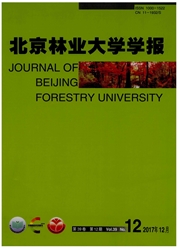

 中文摘要:
中文摘要:
运用通径分析法对江西省大岗山杉木人工林土壤理化性质与土壤酶活性的关系进行了研究,探讨了不同土壤理化性质对土壤酶活性的影响程度和机理。结果表明:各种土壤性质不同程度影响着土壤酶活性的变化特征。土壤碱解氮含量通过强烈的直接作用及其与速效钾含量间的间接作用,在相当程度上决定着纤维素酶活性的变化;有机质含量在β-葡糖苷酶活性的变化中发挥着极其重要的作用;强烈的直接作用及与其他土壤性质间的间接作用使总孔隙度成为影响蔗糖酶活性的主要因素。土壤碱解氮含量和田间持水量决定了多酚氧化酶活性的大部分变异。和简单相关与回归分析手段相比,通径分析能更客观、全面地评价土壤理化性质对土壤酶活性的影响。
 英文摘要:
英文摘要:
The Chinese fir ( Cunninghamia lanceolata ) plantations in Dagang Mountain of Jiangxi Province, eastern China, were selected to study the relationship between soil physico-chemical properties and soil enzyme activity with path analysis method. The influence degree and the mechanisms of soil properties on soil enzyme activity were also explored. Results showed that the variation characteristics of soil enzyme activity were affected by soil properties. The variation characteristics of soil cellulose enzyme activity were determined directly by soil available nitrogen and indirectly by soil readily available potassium to a certain extent. The content of organic matter played a very important role in the β-glueosidase enzyme activity. Total porosity became main affecting factor of soil invertase activity because of its strong direct effect and indirect effects with other soil properties. The content of soil available nitrogen and field moisture capacity were dominant factors of polyphenol oxidase activity by determining most of its variation. Compared with correlation analysis and stepwise regression analysis, path analysis can objectively and comprehensively assess the influences of soil properties on soil enzyme activity.
 同期刊论文项目
同期刊论文项目
 同项目期刊论文
同项目期刊论文
 Foliar and soil N-15 natural abundances provide field evidence on nitrogen dynamics in temperate and
Foliar and soil N-15 natural abundances provide field evidence on nitrogen dynamics in temperate and CO2 Flux Estimation by Different Regression Methods from an Alpine Meadow on the Qinghai-Tibetan Pla
CO2 Flux Estimation by Different Regression Methods from an Alpine Meadow on the Qinghai-Tibetan Pla Rice to vegetables: short versus long-term impact of land use change on the indigenous soil microbia
Rice to vegetables: short versus long-term impact of land use change on the indigenous soil microbia C-13 abundance, water-soluble and microbial biomass carbon as potential indicators of soil organic c
C-13 abundance, water-soluble and microbial biomass carbon as potential indicators of soil organic c Spatiotemporal dynamics of aboveground primary productivity along a precipitation gradient in Chines
Spatiotemporal dynamics of aboveground primary productivity along a precipitation gradient in Chines Mechanism and bio-environmental controls of ecosystem respiration in a cropland in the North China P
Mechanism and bio-environmental controls of ecosystem respiration in a cropland in the North China P Litter production, leaf litter decomposition and nutrient return in Cunninghamia lanceolata plantati
Litter production, leaf litter decomposition and nutrient return in Cunninghamia lanceolata plantati Responses to N and P fertilization in a young Eucalyptus dunnii plantation: Microbial properties, en
Responses to N and P fertilization in a young Eucalyptus dunnii plantation: Microbial properties, en Effects of vegetation control on ecosystem water use efficiency within and among four grassland ecos
Effects of vegetation control on ecosystem water use efficiency within and among four grassland ecos 期刊信息
期刊信息
